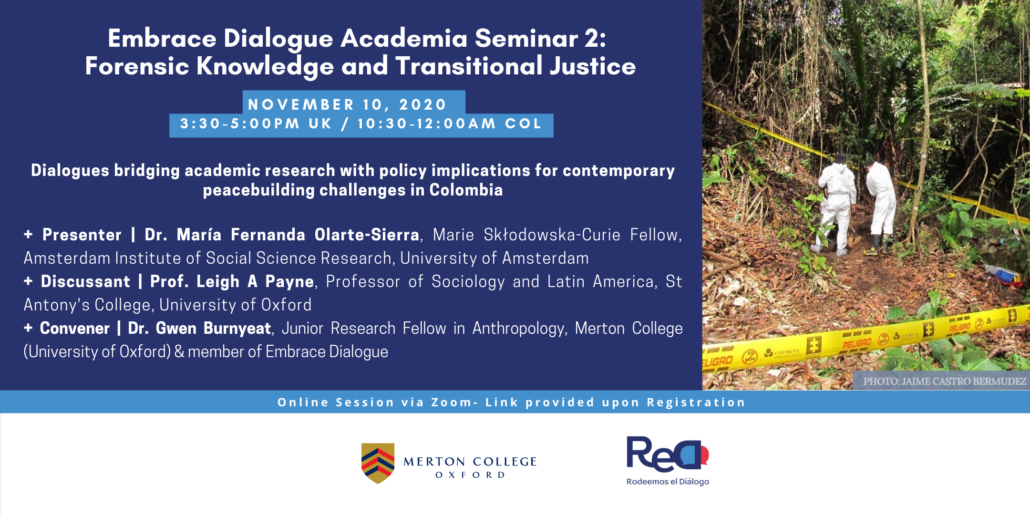ReD events
Embrace Dialogue Academia Seminar 2: Forensic Knowledge and Transitional Justice
Dialogues bridging academic research with policy implications for contemporary peacebuilding challenges in Colombia
The Justice and Peace Law, enacted in 2005, was a transitional justice framework for the demobilized members of the paramilitary group Autodefensas Unidas de Colombia [United Self-Defense of Colombia] and other armed groups. It involved a considerable reduction of prison sentences in exchange for providing, amongst other information, intelligence on the whereabouts of the bodies of people these groups had kidnapped and killed.
Forensic experts from the Prosecutor’s Office were in charge of exhuming and identifying such bodies. Given their presumed objectivity and non-prejudicial approach, forensic experts were placed centre-stage as a source of scientific evidence, testimony, and authority. However, forensic knowledge, like all forms of knowledge, is situated, partial, and performative in the sense that it produces that what it studies.
“In this talk, I will attend to the effects of forensic knowledge on victims’ right to truth, memory practices, and the administration of justice under the Justice and Peace Law in Colombia. I argue that forensic knowledge co-produces the armed conflict by producing victims and perpetrators whose identities and stories can be at odds with other accounts of the violence that occurred.”
Presenter: Dr. María Fernanda Olarte-Sierra, Marie Skłodowska-Curie Fellow, Amsterdam Institute of Social Science Research, University of Amsterdam
Discussant: Prof. Leigh A Payne, Professor of Sociology and Latin America, St Antony’s College, University of Oxford
Convener: Dr. Gwen Burnyeat, Junior Research Fellow in Anthropology, Merton College, University of Oxford, & member of Embrace Dialogue
Date And Time
Tue, 10 November 2020
15:30 – 17:00 GMT



